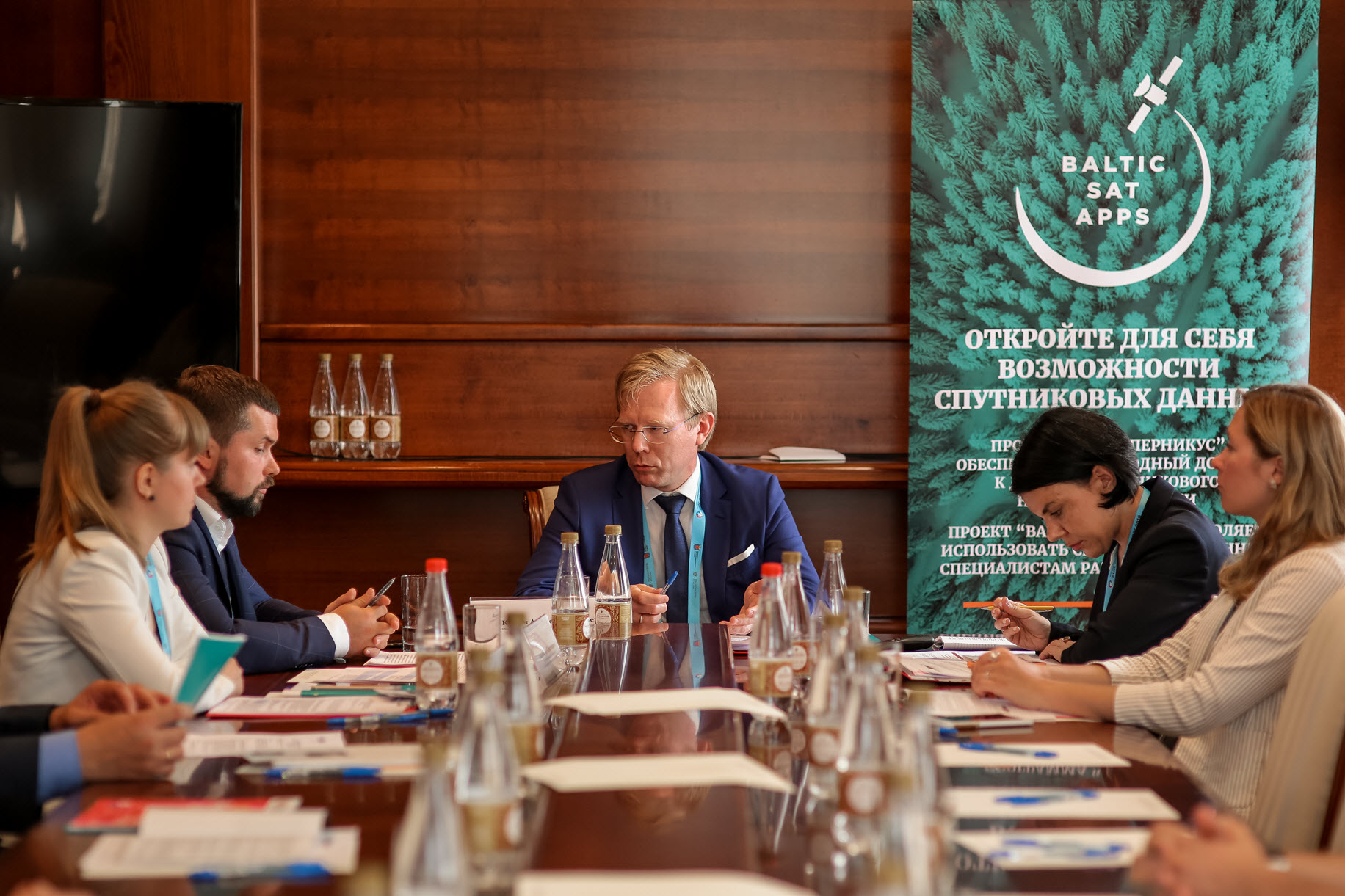On June 21, 2019, a practical seminar «How to create a startup using the opportunities of Copernicus Program» was held in the framework of 6th All-Russian Forum «IT Dialogue».
The seminar was organized by Russian-European Innovation Partnership, Committee on IT and Communications of St. Petersburg, St. Petersburg Institute for Informatics and Automation of RAS and Zero Gravity Oy (Finland) within the BalticSatApps project.
Firstly, the head of the Department of infrastructure technologies and integration systems development (Committee on IT and Communications) Andrey Kashin made a welcoming speech. He noted that the Committee on IT and Communications is interested in the implementation of the BalticSatApps project, the main idea of which corresponds to a number of governmental and private initiatives to increase satellite data application.
Then the executive director of Russian-European Innovation Partnership Maria Kuzko presented the main goals and objectives of project. Remote sensing expert from Russian-European Innovation Partnership Kirill Kozlov reported on the current results of the project.
SPIIRAS representative presented the opportunities of Copernicus program for startups: remote sensing data and technologies, thematic services and their application, as well as options for using Copernicus data as a source of information for creating startups.
The seminar ended with a discussion on the use of satellite data in solving thematic problems in different areas of interest. During the discussion, the interface which is being developed with the support of SPIIRAS for Russian users to interact with remote sensing data, including data from the Copernicus program was presented.
Much interest was aroused by the toolkit developed by Russian partners in the framework of the BalticSatApps project: Evgeniy Panidi (Head of the department of cartography and geoinformatics, Saint Petersburg University) noted that it can be useful for teaching students the principles of remote sensing.
